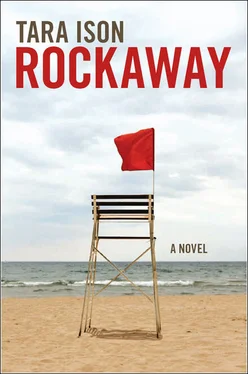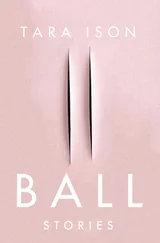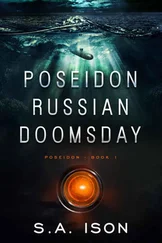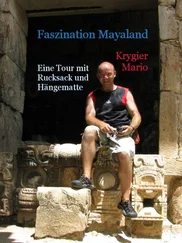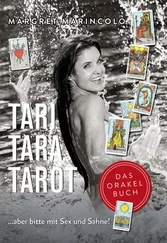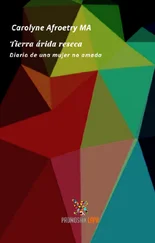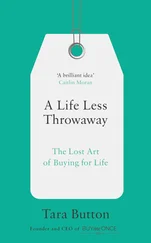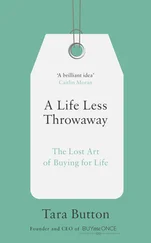“Okay. Uh. .”
“Anything else?” Dr. Brandon sounds pleasant, as always, preoccupied, unconcerned.
“Yeah, I just. .” She swallows again from the sherry bottle, sets it carefully on the floor. “Well, we talked once about if I ever wanted to have kids, remember? And I said no, I didn’t, but you said if I ever did it wouldn’t be any problem for me? Remember?” She wanders closer to her easel, stumbles, grips the wooden frame. She tries to steady herself.
“That was a while back, but. .” Sarah hears papers shuffling. “Hey, did you get married, Sarah?”
She thinks she hears Dr. Brandon smile, happiness for her in her voice. “Oh, no, nothing like that,” she says, quickly. “I’m not getting married, or anything.” She makes ha ha noises into the phone. “I’ve just been thinking. You know, you have a kid, that’s really what your whole life becomes all about. Feeding the baby, taking care of the baby. Being totally focused for years and years on this other little person you’ve created. Serious, important cycle-of-life stuff, right?”
“Sure, yeah. Well, let’s see, you’re how old now?”
“Almost thirty-five.”
“Well, let’s not worry yet. Just go off the Ortho-Novum and try for a few months. Let’s see what happens.”
“Well, no, I don’t want to try .” She leans, peers at her canvas, her little shell.
“You don’t?”
“I just want to know what my options are. If it’s an option, still. Like, yes or no. So I know.”
“I can’t really tell you that, at this point.”
“Yeah, but that’s what I’m trying to figure out. If I just waited and stalled and did nothing for too long, and now it’s too late. .”
You’re too frightened of color. You’re too dependent on a monochromatic palette .
“. . and now it’s all over and decided for me. If it’s that black and white.”
You think it’s safe, staying there, don’t you? You think it’s bold .
“Or if, you know, if I still get to choose my colors.”
“What do you mean?”
“Like crayons in the box, remember that? When you were a kid?”
“Oh, right.”
“You’d open the box and all that color’s waiting for you. It’s like a thousand pointy little rainbows in there. You know you can draw anything. You can draw the whole world. You want to grab every one of them and start scribbling.” She laughs again, a little. “I probably sound so painterly , right? So, whoa, crazy artist, here!” She feels dizzy, closes her eyes, tries to breathe deep. “I’m sorry, Dr. Brandon, what did you say?”
“I said, why don’t you come see me when you’re back in town? We can run some tests.”
“Tests?”
“But it’s too soon to worry about anything. So, don’t worry. Okay?”
“I’m not worried ,” she says. Of course, she thinks, this woman is a scientist, not an artist, how can she possibly understand? She’s been feeling my ovaries, groping my insides, for fifteen years, and thinks she knows me, thinks that’s an answer. Don’t worry. Sure, just don’t worry. .
“Sarah?” She hears impatience in Dr. Brandon’s voice. You shouldn’t be bothering her, she has important scientist things to do.
“Yeah, okay.” She reaches, touches her abandoned palette. The blots of dried color feel like plastic. Aureolin yellow, rose dore madder, dioxazine purple, viridian, pthalo blue, all a waste. “Whatever. I’ll just call you when I get home. Thanks, really. Bye.” She hangs up. She is so thirsty, thick-tongued, where did she leave the sherry bottle? So expensive, these paints. Old Holland Series VI, a hundred and sixty-five dollars a tube. When she bought them for herself she’d pictured old men grinding away at the madder by hand, dribbling in the linseed oil on a marble porphyry table, painstakingly filling the tubes just for her, for all her important work. She’d thought it was worth it at the time. Their purity, their intensity is what makes them valuable, gives them such strength. Those thick tubes in her wooden case could’ve gone far, lived a long, long time. Created so much. She feels pain at wasting them; she feels guilt that she left them all to linger in this heat and dry up and die. She closes her eyes, feels her professor wrench the brush from her hand,
I don’t care if it works or not, if it clashes. Get your hands dirty, Sarah. Mess it up. That’s what’s bold .
She sees him violently squeezing tubes, smearing her canvas,
Otherwise you’ll never have any depth. You’ll have no true perspective. No harmony. You’ll have nowhere to go .
She hears her phone ring. Twice, three times. She needs a drink, needs to drink some water. That’s what you need, a glass of fizzy, cloudy water. She realizes she has clenched her fists, feels her fingernails digging in her palms, makes herself stop. She flexes her sweaty hands. She feels the sour heat of a headache. It’s fall, summer is over, why is it still so hot? She feels her blood is bubbling, in a simmer. Her mouth is dry. She opens her eyes, sees the bottle of sherry on the floor, grabs, takes a final swig. The last drops are horribly warm and syrup-sweet in her mouth. She needs some water.
The phone rings again, the house phone this time. She wishes it would stop.
She picks up her palette knife, crusted with dead red paint. Crimson, scarlet, burgundy, cerise. She grips the smooth wooden handle. She touches, presses the blade to the tips of her fingers, a dull blade, not meant to cut, but its edge is steadying. She presses harder and looks at her painting on its easel, the insignificant little shell. Nothing but some charcoal scratches, a few sad ivory and bone black dabs. No harmony, no depth. She scrapes the corner of the knife along her inner arm, where the skin is so pliant, so fragile and thin. She admires the faint white skin-scrapes, like foreign-language letters, faded skywriting, cuneiform, hieroglyphics on papyrus. An indecipherable message, a hidden wisdom. She pushes the tip against her wrist, senses the pulse there, ticking. She angles the blade, scrapes the full length of her arm, stretching skin. She’d stretched all her canvases so carefully before leaving for Rockaway, scraping her elbows and knees by crawling around the harsh cloth on all fours, using the frame and stretcher she’d built herself to make all those perfect, hopeful, stretched-taut squares. She glances at all those canvases, pushed into a stack in the corner of the room. Their backs are to her, now, rejecting her. Only the one canvas on her easel, her one painting. Insignificant little empty shell.
But there was never any hope for this painting, she realizes, not from the exact second she started it. It’s a blank canvas that’s full of promise. An unstained, unscarred canvas hasn’t been attempted and ruined and failed at yet. The insult, the sin, is what she has both done and hasn’t done to this canvas, and it is too late to start over, time is up, it’s all over, too late.
She regrips the knife, makes a lunging slash at the canvas; it shudders on its easel, but there’s no rip, no tear. She grabs the frame in her other hand to steady it, tries a stab, and this time she stabs through, punctures the canvas so hard her hand slams deep, bruisingly, against her shell; she drops the knife and uses her fingers and hands to rip more, rip harder and wide, skinning her knuckles and tearing the canvas into shreds.
She is panting for breath. But still the simmer, the boil.
She gathers up the tubes of paint, clutching them to her chest like tiny nursing rodents, and hurries downstairs to the kitchen, dumps them on the counter. She kicks the main trashcan out from behind the door. She unscrews a tube of alizarin crimson and squeezes, gasps, no matter how accurately the tubes are color-labeled, so you think you know exactly the shade, the tint, the value you’re getting, there’s always a shock when you see it, see the richness of it. A good shock. Like the difference between blood sealed inside the branching blue lines on your wrist, your thighs, the tender inner flesh of your arms, and the abrupt vivid happy red of it when released.
Читать дальше
